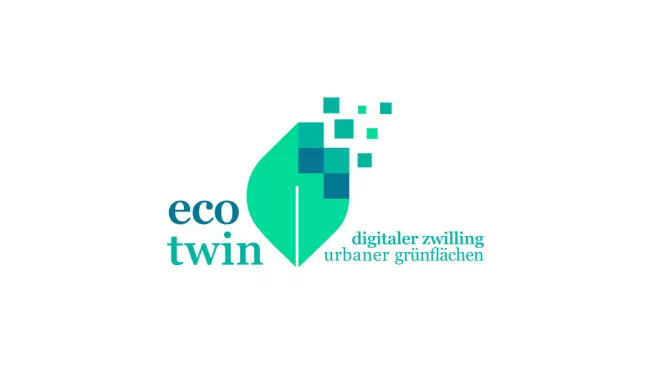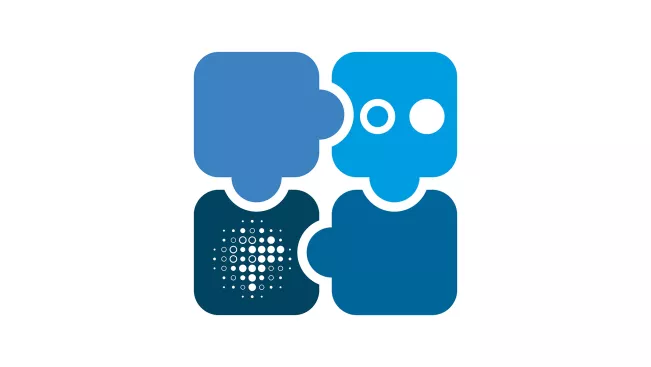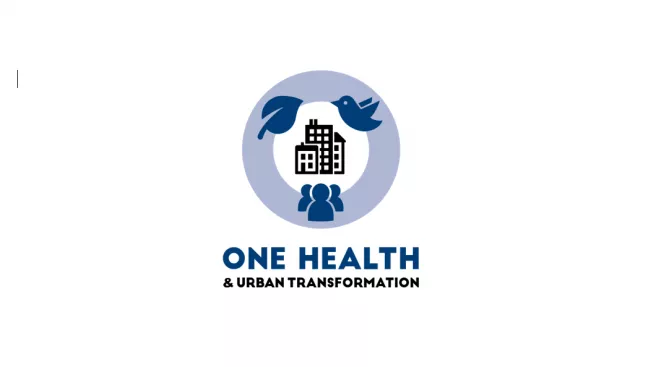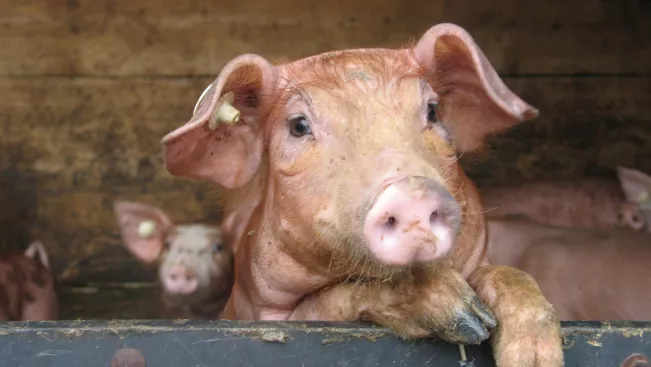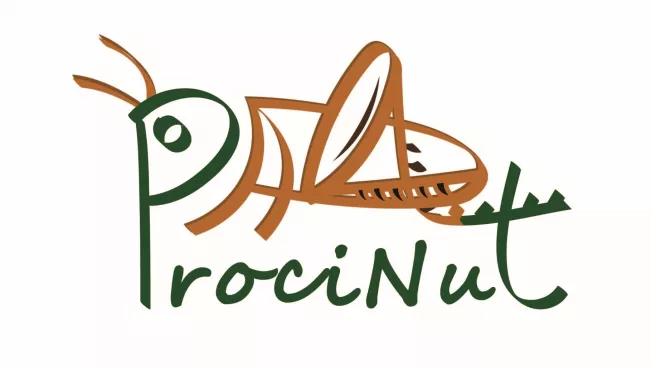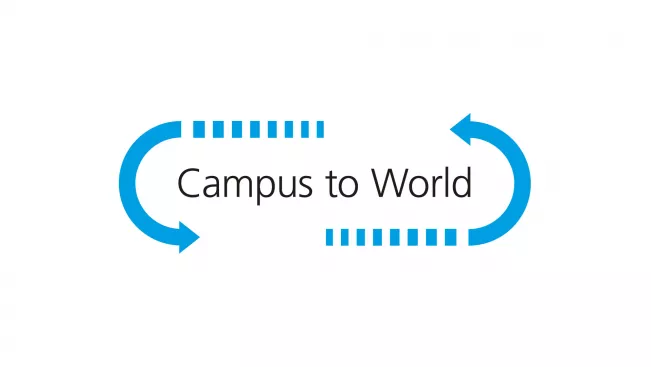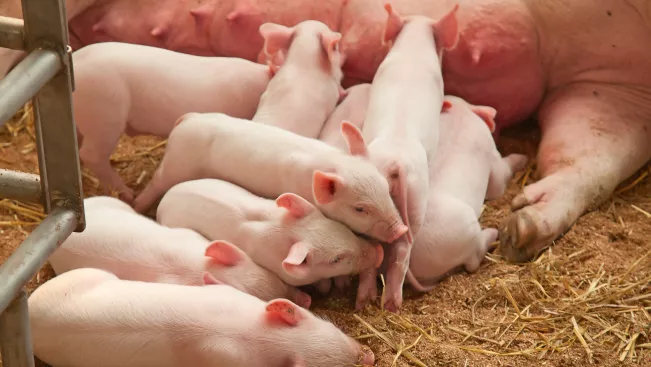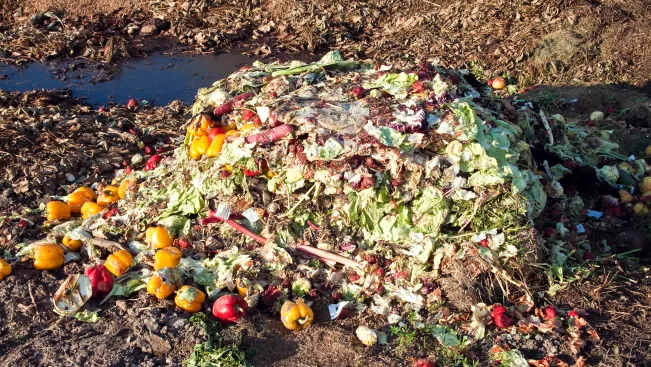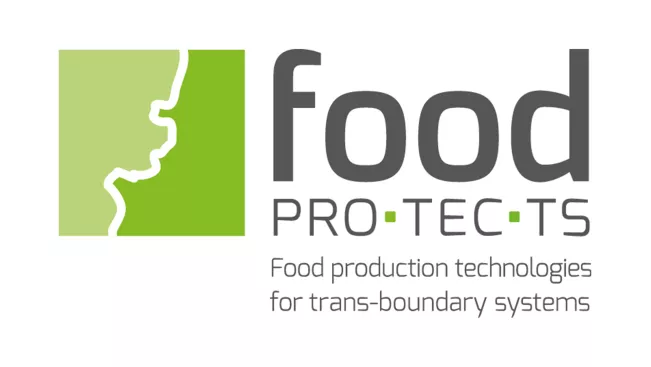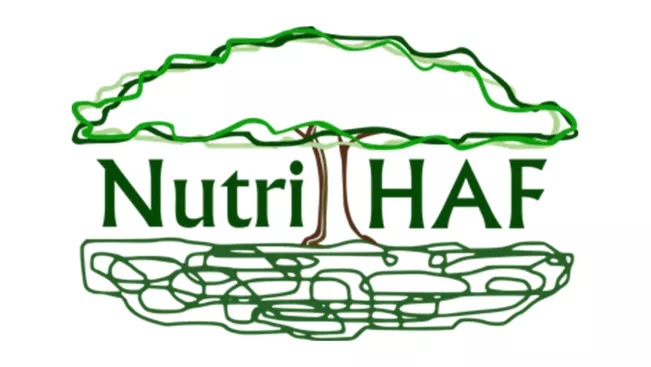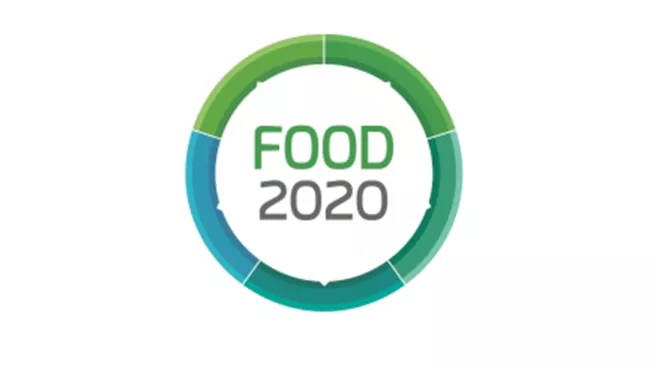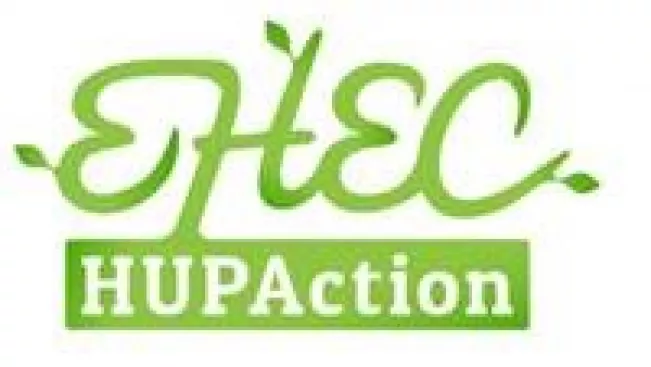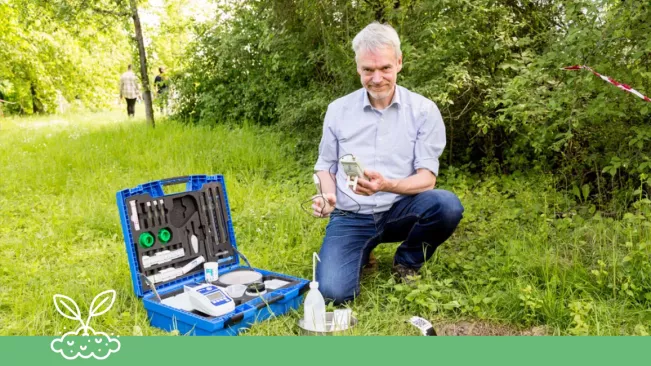International Centre for Sustainable Development (IZNE)

Prof. Dr Martin Hamer
Professor for soils and biomass/Director of the International Centre for Sustainable Development (IZNE)/Department of Applied Natural Sciences
Unit
International Centre for Sustainable Development (IZNE)
Research fields
- Sustainability in the agricultural sector and food industry
- Environmental protection and soil conservation
- Consumer Protection, animal welfare
- Health- and crisis management
- Interaction between food production and the health of human beings, animals and environment (One Health)
Location
Sankt Augustin
Room
F 311
Address
Grantham-Allee 20
53757, Sankt Augustin
Telephone
+49 2241 865 774Profile
Dr. Martin Hamer, chief executive officer of the International Centre for Sustainable Development, holds a master degree in agricultural sciences and a PhD degree in soil sciences, where he investigated the transfer of pollutants from the soil into water, crops and the food chain respectively. After his PhD he received a scholarship from the German Research Foundation (DFG) and worked several years in the area of environmental sciences at the University of California in Riverside (USA) and at the Institute of Crop Science and Resource Conservation of the University of Bonn (Germany). From 2005 to 2014 he established and headed an interdisciplinary and cross-border research network in food and agricultural sciences. During that time he coordinated several national and international projects in the area of food quality and safety, environmental risk management and sustainable agriculture focussing on the interaction between food production and environmental. Furthermore he supported different stakeholders in agrofood chains and research bodies by facilitating international co-operation, distribution of project results, and knowledge transfer. Thus he is skilled in the field of adult education and an experienced EU-project manager.
Teaching (supervision of bachelor and master theses as well as teaching assignments at the university of Bonn)
- Sustainability communication in the agri-food industry (sustainability as quality parameter)
- Interaction between environment and food production (evaluation ecosystem services )
- Health- and crisis management as well as product and process quality
Curriculum vitae
since 03/2014 International Center for Sustainable Development (IZNE) at Bonn-Rhein-Sieg University of Applied Sciences.
03/2005 - 02/2014 International Research Network GIQS e. V.
07/2005 - 02/2008 Ministry for Climate Protection, Environment, Agriculture, Nature Conservation and Consumer Protection of the State of North Rhine-Westphalia (MKULNV)
04/2002 - 11/2004 Institute of Crop Sciences and Resource Conservation, Rheinische Friedrich-Wilhelms-University Bonn
01/2001 - 12/2001 Department of Environmental Sciences, University of California, Riverside, USA
03/1995 - 12/2000 Institute of Soil Science, Rheinische Friedrich-Wilhelms-University Bonn
Memberships
- Member of the Management-Committee der COST Action One Health (NEOH)
- Member of the Scientific Committee of the International Conference "Cold Chain Management"
- Deutsche Bodenkundliche Gesellschaft (DBG)
- GIQS
- bonn.realis
- ecohealth international
- Forschungsnetzwerk NRW-Agrar
Research Projects
The EcoTwin research project is researching how urban green spaces can reduce climate change. The aim is to support environmental and green space authorities in sustainable land management through a digital twin and to provide data-based and location-adapted measures. Modern sensors and AI technologies help to bundle environmental information and process it in a meaningful way. Citizens are actively involved and can participate in their private green spaces. EcoTwin strives for a sustainable and climate-resilient use of urban green spaces.
Project management at the H-BRS
Prof. Dr Martin HamerThe "Digital Twin-4-Multiphysics Lab" (DT4MP) focuses on urban digital twins (UDTs) and multiphysics twins for industry, treating both areas equally and synergistically. By integrating real-time data and advanced simulations, DT4MP enhances urban processes, infrastructures, and industrial production efficiency. Combining AI and machine learning, the lab provides services like data analysis and virtual testing for SMEs and larger companies. Founded by leading institutes, DT4MP drives digitalization research in urban and industrial contexts.
Project management at the H-BRS
Prof. Dr Sebastian Houben Prof. Dr Dirk Reith Dr Alexander HaggThe KLUGER Transfer project stands for knowledge transfer in the fields of climate, environment and health research. The aim is to strengthen the transfer of knowledge from basic research at the Max Planck Institute for Chemistry (MPIC) via applied research at the International Center for Sustainable Development (IZNE) at Bonn-Rhein-Sieg University of Applied Sciences (H-BRS) to the public, politics and business. Different formats for targeted exchange are being tested in order to improve communication between science, society and politics.
Project management at the H-BRS
Prof. Dr Katja Bender Prof. Dr Martin Hamer Prof. Dr Stefanie Meilinger Prof. Dr Wiltrud TerlauUsing the One Health approach, the research college, led by ZEF at the University of Bonn, is looking at urban food systems: on the one hand, at the "supply of healthy food from sustainable production" and, on the other hand, at the "spread and transmission of antibiotic-resistant pathogens" through food chains. Furthermore, health-related aspects of urban transformation are highlighted, which fall into the areas of "health and well-being" and "sustainable cities".
Project management at the H-BRS
Prof. Dr Katja Bender Prof. Dr Martin Hamer Prof. Dr Wiltrud TerlauThe aim of the project is to establish a structure that is sustainable in the long term and meets the requirements of animal welfare and environmental justice, as well as the business and social needs of livestock farms. Due to the consequences for the livestock farming industry, a broad dialog is required. This is to be worked out in the further course of a dialog process with agriculture, including the upstream and downstream economy, environmental and animal welfare associations as well as the food retail trade and consumer associations.
Project management at the H-BRS
Prof. Dr Martin HamerThe project intends to better exploit the potential of edible insects for nutrition. It explores different processing technologies of local insect species and expands small-scale commercial production and processing activities. The goal is to produce safe and nutritious end products that fill seasonal gaps, increase household food security, and improve the income situation of poor women in Madagascar and Myanmar. The network coordinator is the Center for Development Research ZEF at the University of Bonn.
Project management at the H-BRS
Prof. Dr Martin Hamer Isabelle HirschBonn-Rhein-Sieg University of Applied Sciences has adapted its existing transfer instruments to the changing demands and requirements of business and needs of business, society and science and developed new suitable transfer mechanisms. The project was funded by the federal-state initiative "Innovative University".
In the project "Roiporq - Suitability of a special pig cross-breeding for alternative forms of husbandry with full physical integrity of the animals for differentiation in the market" a special pig cross-breeding, which is suitable for conventional and organic fattening, will be tested for market suitability. The meat of this cross-breeding should be sensorially distinguishable for consumers and thus be recognizably differentiated from conventionally produced pork.
Project management at the H-BRS
Prof. Dr Martin HamerIn addition to the losses of fresh fruit and vegetables that occur within households, the losses that occur at the beginning of the value chain play a major role. If food is not used as such, the resources used for production (e.g. labor, land, energy, fertilizer and pesticides) and the environmental impacts of production (e.g. greenhouse gases, nitrate leaching) are not matched by corresponding benefits. Therefore, a reduction of losses is also important from an environmental point of view.
Project management at the H-BRS
Prof. Dr Martin HamerFood Pro.tec.ts was developed to be able to bring high-class, technological innovations to the German-Dutch economic area. In the project, companies from both countries cooperate with innovation experts within different technology clusters with the aim of jointly developing new and novel technologies and learning how to use them. The sub-project "Food Pro.tec.ts Biomass" analyses in one of 8 work packages the material and energetic use of biomass by means of Hydrothermal Carbonization (HTC) and new fertiliser technologies.
Project management at the H-BRS
Prof. Dr Martin HamerFood Pro.tec.ts was developed to be able to bring high-class, technological innovations to the German-Dutch economic area. In the project, companies from both countries cooperate with innovation experts within various technology clusters with the aim of jointly developing new and novel technologies and learning how to use them. The sub-project "Food Pro.tec.ts Knowledge Transfer" develops exercises, trainings and knowledge transfer for consumers and users of new technologies in one of 8 work packages. The work packages focus on the development of sustainability and CSR management, communication as well as education strategies to promote a common understanding of sustainability in the Rhine-Waal region. This is the basis for the development of trend-setting technologies and processes that meet the ecological, ethical, social and economic market requirements. Through these developments, the competitiveness of SMEs in the agricultural and food industry in the Rhine-Waal region is secured in the long term. The reputation of the Rhine-Waal region beyond regional borders as an attractive and sustainable business location is strengthened.
Project management at the H-BRS
Prof. Dr Martin Hamer Prof. Dr Wiltrud Terlau Isabelle HirschThe research consortium "One Health and Urban Transformation - Recognizing Risks and Developing Sustainable Solutions" is a graduate school funded by North Rhine-Westphalia’s Ministry of Innovation, Science and Research NRW. It is coordinated by the Center for Development Research (ZEF) in cooperation with institutes of the University of Bonn, the Bonn-Rhein-Sieg University of Applied Sciences and the United Nations University (Institute for Environment and Human Security).
Project management at the H-BRS
Prof. Dr Katja Bender Prof. Dr Wiltrud Terlau Prof. Dr Martin HamerAgainst the backdrop of the concretization of the 2030 Agenda adopted in September and the universally applicable Sustainable Development Goals (SDGs) anchored therein, solution strategies for the greater intensification of interdisciplinary cooperation between different scientific disciplines and the necessary internationalization of research will be developed in a dialogue between representatives of development and sustainability research, research policy and research funding institutions.
Project management at the H-BRS
Prof. Dr Katja BenderTwo billion people worldwide suffer from the consequences of inadequate nutrition and micronutrient deficiencies, which result in physical weakness, disease and, in extreme cases, death. Against this background, the German Federal Ministry of Food and Agriculture (BMEL), with the support of the project executing agency Federal Agency for Agriculture and Food (BLE), is funding four German-African research consortia with a total funding amount of around 4.5 million euros for the next three years.
Project management at the H-BRS
Prof. Dr Martin HamerThe Food 2020 project is all about the German-Dutch border region, the center of the European food industry. Through the project, small and medium-sized enterprises (SMEs) in the food industry in the border region receive financial and technical support as well as innovative ideas from research institutions.
Project management at the H-BRS
Prof. Dr Martin HamerIn the e-H@C HUPAction project, a system is being developed and tested to improve the cross-border exchange of information between authorities and companies in the vegetable value chain, using the Euregio Rhine-Waal as an example. The focus is on the rapid detection and monitoring of health risks and the control of hazards posed by enterohemorrhagic Escherichia coli (EHEC) bacteria.
Project management at the H-BRS
Prof. Dr Wiltrud Terlau Prof. Dr Martin HamerPublications
2025
Katja Bender, Martin Hamer, Stefanie Meilinger, Wiltrud Terlau, Susanne Benner, Alexandra Gutmann, Laura Lelieveld-Fast, Samantha Antonini, Frank Dieball, Angela Turck, Sebastian Heinen:
KLUGER Transfer (Klima-Umwelt-Gesundheit) - Institutionalisierte Transfer-Kooperation zwischen außeruniversitären Forschungseinrichtungen und Hochschulen für Angewandte Wissenschaften.
doi:10.34657/27048
BibTeX | RIS
2024
Martin Hamer:
Assessing the Resilience of Soils to Acidification on Different Time Scales.
PDF Download (CC BY 4.0) doi:10.31031/EAES.2024.11.000772 urn:nbn:de:hbz:1044-opus-86778
BibTeX | RIS
Atefeh Movassagh, Bibiana Betancur Corredor, Martin Hamer:
Promoting Carbon Storage and Health in Urban Soils through Sustainable Management Practices.
PDF Download (Meeting Abstract, CC BY 4.0) doi:10.5194/egusphere-egu24-13244 urn:nbn:de:hbz:1044-opus-80645
BibTeX | RIS
2022
Philipp Swoboda, Thomas F. Döring, Martin Hamer:
Remineralizing soils? The agricultural usage of silicate rock powders: A review.
PDF Download (CC BY-NC-ND 4.0) doi:10.1016/j.scitotenv.2021.150976 PMID urn:nbn:de:hbz:1044-opus-59663
BibTeX | RIS
2021
Philipp Swoboda, Martin Hamer, Michael Stotter, Thomas F. Döring, Manfred Trimborn:
Effects of Rock Powder Additions to Cattle Slurry on Ammonia and Greenhouse Gas Emissions.
PDF Download (CC BY 4.0) doi:10.3390/atmos12121652 urn:nbn:de:hbz:1044-opus-60347
BibTeX | RIS
Michael Stotter, Florian Wichern, Ralf Pude, Martin Hamer:
Utilisation of Miscanthus x giganteus L. Based C-Rich Fertilisers for N Immobilisation and Microbial Biomass Build-Up in a Crop Rotation.
PDF Download (CC BY 4.0) doi:10.3390/agronomy11122390 urn:nbn:de:hbz:1044-opus-60148
BibTeX | RIS
Michael Stotter, Florian Wichern, Ralf Pude, Martin Hamer:
Nitrogen Immobilisation and Microbial Biomass Build-Up Induced by Miscanthus x giganteus L. Based Fertilisers.
PDF Download (CC BY 4.0) doi:10.3390/agronomy11071386 urn:nbn:de:hbz:1044-opus-56390
BibTeX | RIS
2020
Isabelle Hirsch, Martin Hamer, Darya Hirsch:
Using a Hot Spot Analysis as the Basis for Target Group Specific Training Materials on Insect Rearing.
URL
BibTeX | RIS
2019
Michael Stotter, Martin Hamer, David Bohnenkamp, Jan Behmann, Kevin Leitenberger, Ralf Pude:
Hyperspektrale Erfassung eines mit unterschiedlichen Wirtschaftsdüngern aus Miscanthus-Häckselgut versorgten Wintergerstenbestandes zum Zeitpunkt der Vollreife.
URL
BibTeX | RIS
Darya Hirsch, Martin Hamer, Isabelle Hirsch:
Sustainability Hot Spot Analysis of Insect Supply Chains for Food and Feed.
URL
BibTeX | RIS
Michael Stotter, Martin Hamer, Kevin Leitenberger, Georg Völkering, Ralf Pude:
Erfassung der N-Dynamik verschiedener Wirtschaftsdünger in Wintergerste und Senf im Dürrejahr 2018.
BibTeX | RIS
2018
Michael Stotter, Martin Hamer, Samantha Antonini, Kevin Leitenberger, Georg Völkering, Ralf Pude:
N-Mineralisierungskinetik von Wirtschaftsdüngern basierend auf Miscanthus-Häckselgut.
BibTeX | RIS
Christian H. Meyer, Martin Hamer, Dominik Frieling, Gero Oertzen:
Lebensmittelverluste von Obst, Gemüse, Kartoffeln zwischen Feld und Ladentheke: Ergebnisse einer Studie in Nordrhein-Westfalen.
URL
BibTeX | RIS
2017
Michael Stotter, Martin Hamer, Georg Völkering, Ralf Pude:
Eigenschaften eines streufähigen Substrates bestehend aus flüssigen Wirtschaftsdüngern und Miscanthus.
BibTeX | RIS
M. Stotter, M. Hamer, K. Leitenberger, G. Völkering, R. Pude:
Nutzungsmöglichkeiten innerbetrieblich anfallender Wirtschaftsdünger mit Miscanthus.
BibTeX | RIS
Christian H. Meyer, Dominik Frieling, Martin Hamer, Gero Oertzen:
Food Losses in Supply Chains for Fruits, Vegetables and Potatoes between Field and Retail Shelf in North-Rhine Westphalia, Germany.
PDF Download (CC BY-NC 4.0) doi:10.18461/pfsd.2017.1704 urn:nbn:de:hbz:1044-opus-31778
BibTeX | RIS
2016
Céline Heinemann, Martin Hamer:
Risikobewertung des Rohmilchverzehrs und mögliche Konsequenzen.
doi:10.14761/000018
BibTeX | RIS
Darya Hirsch, Christian H. Meyer, Johannes Klement, Martin Hamer, Wiltrud Terlau:
Urban AgriCulture and Food Systems Dynamics in the German Bonn/Rhein-Sieg Region.
PDF Download (CC BY-NC 4.0) doi:10.18461/ijfsd.v7i4.745 urn:nbn:de:hbz:1044-opus-27134
BibTeX | RIS
Christian H. Meyer, Darya Hirsch, Martin Hamer, Wiltrud Terlau:
Corporate social responsibility under scrutiny - A web content analysis referring to German animal welfare initiatives.
BibTeX | RIS
Darya Hirsch, Christian Meyer, Johannes Klement, Martin Hamer, Wiltrud Terlau:
Urban AgriCulture and Food Systems Dynamics: Urban Gardening and Urban Farming of the Bonn-Rhein-Sieg region, Germany.
PDF Download (CC BY-NC 4.0) doi:10.18461/pfsd.2016.1646 urn:nbn:de:hbz:1044-opus-24968
BibTeX | RIS
M. Hamer, W. Terlau, O. Breuer, J. van der Roest, B. Petersen:
The EHEC-Crisis - Impact and lessons learned - Sustainable cross-border crisis control and communication.
doi:10.17660/ActaHortic.2016.1126.6
BibTeX | RIS
2015
C. Meyer, D. Hirsch, M. Hamer, W. Terlau:
Citizen Science for Sustainable Development, Knowledge Co-Creation in Urban Food Systems – A conceptual Framework.
BibTeX | RIS
Christian H. Meyer, Martin Hamer, Wiltrud Terlau, Johannes Raithel, Patrick Pongratz:
Web Data Mining and Social Media Analysis for better Communication in Food Safety Crises.
PDF Download (CC BY-NC 4.0) doi:10.18461/ijfsd.v6i3.631 urn:nbn:de:hbz:1044-opus-17002
BibTeX | RIS
Christian H. Meyer, Martin Hamer, Wiltrud Terlau, Johannes Raithel, Patrick Pongratz:
Web Data Mining and Social Media Analysis for better Communication in Food Safety Crises.
PDF Download (CC BY-NC 4.0) doi:10.18461/pfsd.2015.1505 urn:nbn:de:hbz:1044-opus-16997
BibTeX | RIS
2014
Brigitte Petersen, Manfred Nüssel, Martin Hamer:
Quality and risk management in agri-food chains.
doi:10.3920/978-90-8686-789-9
BibTeX | RIS
Michael Clasen, Martin Hamer, Susanne Lehnert, Brigitte Petersen, Brigitte Theuvsen (Hg.):
IT-Standards in der Agrar- und Ernähungswirtschaft: Fokus: Risiko- und Krisenmanagement. Referate der 34. GIL-Jahrestagung, Bonn, Germany, 24-25.02.2014.
URL
BibTeX | RIS
2013
Tilman Wilke, Verena Raab, Oliver Breuer, Martin Hamer, Brigitte Petersen:
Lebensmittelsicherheit und die Entwicklung von Public-Private-Partnership-Strukturen.
doi:10.1007/s12399-012-0310-3
BibTeX | RIS
2010
Brigitte Petersen, Martin Hamer:
Quality management from West to East – “Made in Germany” soon a “must have” in China too..
URL
BibTeX | RIS
Martin Hamer, Adriane Mack, Maren Bruns:
Allianzen zwischen Wirtschaft und Wissenschaft als Innovationsmotor.
BibTeX | RIS
2008
Paul Römkens, Eelco Franz, Ine van der Fels-Klerx, Leo van Raamsdonk, Friedhelm Jaeger, Marion Thielen, Karin Bosshammer, Jörg Leisner-Saaber, Christoph Rath, Martin Hamer:
Chain models as a tool to quantify the relation between soil, crop quality and human exposure.
BibTeX | RIS
Martin Hamer, Brigitte Petersen:
„from stable to table“: Food Safety and Quality in International Food Chains.
URL
BibTeX | RIS
2003
Martin Hamer, Gerhard W. Brümmer:
Säureneutralisationskapazität (SNK) und H+-Pufferraten bodenbildender Minerale.
URL
BibTeX | RIS
Martin Hamer, Robert G. Graham, Christopher Amrhein, Krassimir N. Bozhilov:
Dissolution of Ripidolite (Mg, Fe-Chlorite) in Organic and Inorganic Acid Solutions.
doi:10.2136/sssaj2003.6540
BibTeX | RIS
2001
Martin Hamer:
Säureneutralisationskapazität und Mechanismen der Protonenpufferung definierter Minerale sowie ausgewählter Gesteine und Böden Nordrhein-Westfalens.
URL
BibTeX | RIS
Martin Hamer, Robert G. Graham, Christopher Amrhein:
Ligand- and proton-promoted weathering of primary chlorites.
URL
BibTeX | RIS
1999
Martin Hamer, C. Middendorf, Gerhard W. Brümmer:
Prozesse und Raten der Protonenpufferung durch Schichtsilicate.
URL
BibTeX | RIS
1998
Martin Hamer, C. Middendorf, Gerhard W. Brümmer:
Kinetik und Mechanismen der Protonenpufferung an Mineraloberflächen.
URL
BibTeX | RIS
1997
Martin Hamer, Gerhard W. Brümmer:
Kinetik der Protonenpufferung und Elementfreisetzungsraten von Böden aus Löß sowie ausgewählter Minerale.
URL
BibTeX | RIS
Further Information
Consultation Hour for Sustainability
Dr. Martin Hamer invites students of all departments to get informed about topics of sustainability. He offers support for the first steps into the topics as well as specific projects, papers and theses, and the placements of internship semesters.
